My iron skillet
Barb Conrad
8 years ago
Featured Answer
Sort by:Oldest
Comments (112)
rgreen48
8 years agolast modified: 8 years agoUser
8 years agoRelated Discussions
Dating my Iron skillet
Comments (1)If memory serves me, the Number refers to the size of the burner in wood burning stoves that it would fit with. You used that certain numbered skillet or pot with the corresponding burner. The letters are pattern molds of the skillet or pot. There may also be a smaller letter which represents the maker of the item. Foundry men had letters to show which man made what pot. Erie and Griswold are early cast iron makers. NancyLouise...See MoreLOOKING for: Desserts/Corn Bread that can be made in a Cast-Iron
Comments (3)I baked this Upside Down Pineapple cake in a cast iron skillet. This cake is made using fresh pineapple. Pineapple Upside-Down Cake Source: Thomas Keller Pan Schmear 8 Tbsp (1 Stick; 4 oz) Unsalted Butter, at room temperature 1 ½ Tbsp Honey ½ tsp Dark Rum 1 Cup Packed Light Brown Sugar ¼ tsp Vanilla Paste or Pure Vanilla Extract Sea Salt 1 Gold (Extra-Sweet) Pineapple Cake 1 1/3 Cups Cake Flour 2 tsp Baking Powder 8 Tbsp (1 Stick; 4 oz) Unsalted Butter, at room temperature ½ Cup Plus 2 Tbsp Granulated Sugar ½ tsp Vanilla Paste or Pure Vanilla Extract 2 Large Eggs 1 Tbsp Plus 1 tsp Milk Method Preheat the oven to 350˚F. In the bowl of a stand mixer fitted with the paddle, combine the butter, honey, rum, brown sugar, and vanilla and beat until smooth and well blended. Spread 1/3 cup of the schmear over the bottom of a 9-inch silicone cake pan. Sprinkle lightly with salt. (The remaining schmear can be refrigerated for up to 2 weeks or frozen for up to 1 month; bring to room temperature before using.) Cut the top and bottom from the pineapple and cut away the peel. Cut the pineapple lengthwise into quarters, and cut off the core from each section. Cut each piece crosswise into ¼-inch thick slices. Beginning at the perimeter of the pan, make an overlapping ring of pineapple slices with the curved side facing out. Make a second ring inside the first one, overlapping the slices in the opposite direction, working toward the center of the pan. Sift the flour and baking powder together; set aside. Put the butter and sugar in the bowl of a stand mixer fitted with the paddle and mix on low speed to combine, then beat on medium speed for about 3 minutes, until light and creamy, stopping to scrape down the sides as necessary. Mix in the vanilla. Add the eggs one at a time, beating until the first one is incorporated before adding the second and scraping down the sides as necessary. Beat in the milk. Add the flour mixture in 3 batches, beating until combined. Pour the batter into the pan and spread over the pineapple. Bake for 15 minutes. Rotate the pan for even browning and bake for another 20 to 25 minutes, until a cake tester or wooden skewer inserted in the center of the cake comes out clean. Cool the cake in the pan on a cooling rack for 20 to 40 minutes. Run a knife around the edges of the cake, invert onto a serving platter, and serve warm. (Leftover can be stored at room temperature for up to 2 days.) ----------------------------------------------------------- This is my favourite Corn bread recipe. Corn Bread 1 1/2 cups yellow cornmeal 1 cup all purpose flour 1/3 cup sugar 1 teaspoon salt 1 tablespoon baking powder 2 eggs 6 tablespoons melted and cooled butter 8 tablespoons melted and cooled vegetable shortening 1 1/2 cups milk Preheat the oven to 400°. sift into a mixing bowl the cornmeal, flour, sugar, salt and baking powder. Beat the eggs lightly, add the melted butter and shortening, and stir in the 1 1/2 cups of milk. Pour into the bowl of dry ingredients and beat together for about a minute, or until smooth. Do not over beat. Lightly butter an 8 x 12 inch shallow baking pan and pour in the batter. Bake in the center of the oven for about 30 minutes, or until the bread comes slightly away from the edge of the pan and is golden brown. If you wish you make bake the cornbread in a 9 x 5 x 3 inch loaf pan or in muffin tins. Increase the baking time to 45 minutes if using a loaf pan. Also great baked in a cast iron skillet....See MoreCast Iron Dutch Oven
Comments (29)I wouldn't go by the 4time Felon and others using things, when they sell them. Kind of a bias there, right? But yes, a lot of good cooks use cast iron. And a lot of good cooks do not use cast iron. These arguments go on and are similar to the gas vs. electric stoves each are used by a number of good cooks. Let's not lose sight of a simple fact: Neither the appliance nor the cookware make a cook a good (or great) cook. A good/great cook can cook with and on most anything. I used cast iron at the lake a lot. But that gas stove was not the best for use with it, though it worked and is what I had out there. I have a cast iron dutch oven in the basement and haven't used it in decades. Part of my problem was my old stove was a corningware top that wouldn't work well with cast iron. I've since replaced it and have considered getting some cast iron but for the most part I look at it as if I haven't needed it for decades, do I need it now? Will I really use it? I can't think of much I really would use it for. However Aldi has their cast iron sale a couple times a year and for $20-$30 I figure I could try a few things. They should be having it again in a month or two. I'll watch for it and consider it then. Weight is a big factor for me. Another hesitation. Cookware is a personal thing. My mother used mostly cast iron and I learned to cook in it. But I've found other alternatives that I like too. I'm not as locked into things as some. If you think you need it or want to try it, get a cheap one or see if someone has something you could borrow. Remember to season it and uncoated cast iron requires more care than other cookware. Not too big a deal but if it rusts, you're in for some work and they can rust easily if not properly cared for....See Moreboo hoo, I soaked my cast iron skillet
Comments (8)All is not lost. Seasoning is an ongoing process, and whatever (minimal) seasoning the Lodge folks applied to your skillet will soon be supplanted by your own efforts. FWIW, here's how I clean cast iron that needs some scouring: use coarse salt and paper towels, with just a little bit of water if needed, to loosen up the stuck on stuff. Then rinse the pan with hot water, dry it with another paper towel, put it back on the stove a few minutes to drive off any remaining water, and then while it's still warm apply a thin coat of oil. The cast iron guru in this forum is Dan ('danab'); I've learned a lot of info from his posts. Some of his previous threads are linked to in this recent thread about cast iron and soap. Here is a link that might be useful: cast iron and soap...See Morelindac92
8 years agorgreen48
8 years agolast modified: 8 years agoannie1992
8 years agol pinkmountain
8 years agolast modified: 8 years agolindac92
8 years agoannie1992
8 years agoBarb Conrad
8 years agocookncarpenter
8 years agolast modified: 8 years agocookncarpenter
8 years agodcarch7 d c f l a s h 7 @ y a h o o . c o m
8 years agolast modified: 8 years agolindac92
8 years agolast modified: 8 years agomarilyn_c
8 years agoplllog
8 years agol pinkmountain
8 years agoannie1992
8 years agolizbeth-gardener
8 years agolast modified: 8 years agol pinkmountain
8 years agolast modified: 8 years agosheesh
8 years agorgreen48
8 years agolast modified: 8 years agorgreen48
8 years agol pinkmountain
8 years agolast modified: 8 years agolindac92
8 years agoJasdip
8 years agosleevendog (5a NY 6aNYC NL CA)
8 years agolast modified: 8 years agoplllog
8 years agolindac92
8 years agoplllog
8 years agodcarch7 d c f l a s h 7 @ y a h o o . c o m
8 years agoci_lantro
8 years agol pinkmountain
8 years agoci_lantro
8 years agol pinkmountain
8 years agowintercat_gw
8 years agosleevendog (5a NY 6aNYC NL CA)
8 years agodcarch7 d c f l a s h 7 @ y a h o o . c o m
8 years agosleevendog (5a NY 6aNYC NL CA)
8 years agol pinkmountain
8 years agolast modified: 8 years agoplllog
8 years agolast modified: 8 years agosleevendog (5a NY 6aNYC NL CA)
8 years agol pinkmountain
8 years agolindac92
8 years agol pinkmountain
8 years agosleevendog (5a NY 6aNYC NL CA)
8 years agosleevendog (5a NY 6aNYC NL CA)
8 years agocookncarpenter
8 years agolindac92
8 years agodcarch7 d c f l a s h 7 @ y a h o o . c o m
8 years agolast modified: 8 years agol pinkmountain
8 years ago
Related Stories
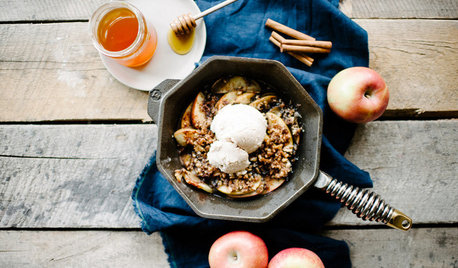
SHOP HOUZZShop Houzz: The Cast Iron Kitchen
Celebrate cast iron with cooking accessories and home accents
Full Story0
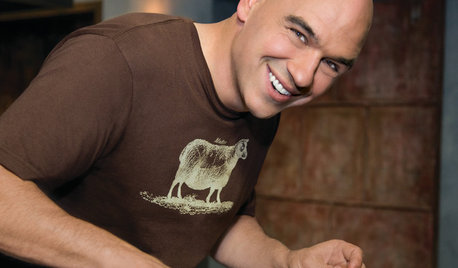
TASTEMAKERSPro Chefs Dish on Kitchens: Michael Symon Shares His Tastes
What does an Iron Chef go for in kitchen layout, appliances and lighting? Find out here
Full Story
HOUSEKEEPINGHow to Clean Your Cookware So It Lasts
Avoid damage during everyday cleaning and stain scrubbing, with these tips for pots and pans made of popular materials
Full Story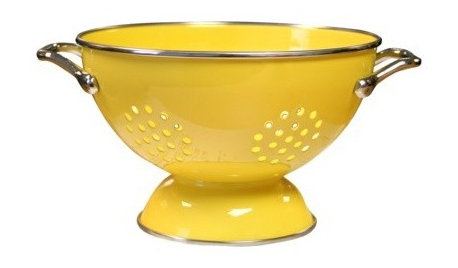
PRODUCT PICKSGuest Picks: The Well-Stocked Starter Kitchen
We’ve got all the kitchen basics and tableware you need (or that recent grad needs) to make cooking a joy
Full Story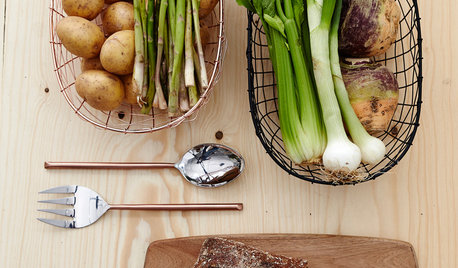
MOVINGYour First Home: Beautiful Basics and Multitaskers for Every Room
Here’s what to choose and what to avoid when outfitting a new house
Full Story
KITCHEN DESIGNHouzz Call: Tell Us About Your First Kitchen
Great or godforsaken? Ragtag or refined? We want to hear about your younger self’s cooking space
Full Story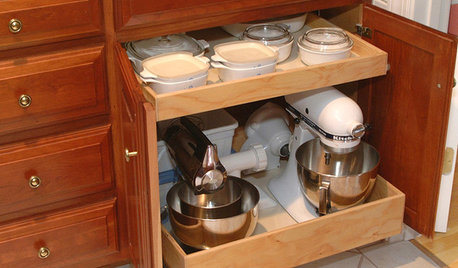
KITCHEN APPLIANCESConsidering a New Kitchen Gadget? Read This First
Save money, time and space by learning to separate the helpers from the hassles
Full Story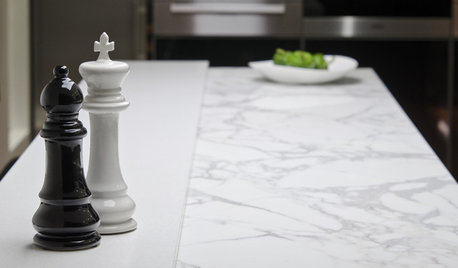
KITCHEN COUNTERTOPSKitchen Counters: High-Tech Solid Surfaces Make Maintenance Easy
Sculpted by heat and nonporous by nature, solid-surface countertops bring imagination and low maintenance to the kitchen
Full Story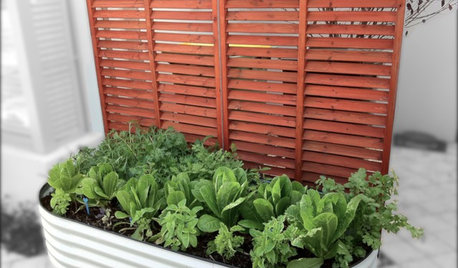
FEEL-GOOD HOME21 Ways to Waste Less at Home
Whether it's herbs rotting in the fridge or clothes that never get worn, most of us waste too much. Here are ways to make a change
Full Story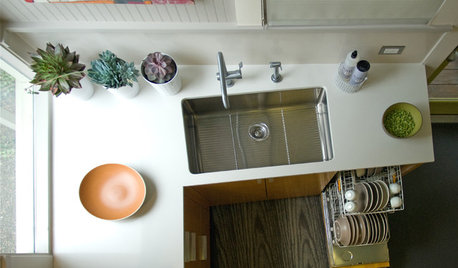
MOST POPULARHow to Choose the Right Kitchen Sink
Learn about basin configurations, sink shapes, materials and even accessories and specialty sinks
Full Story




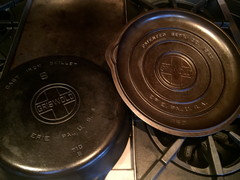



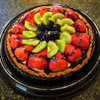
annie1992